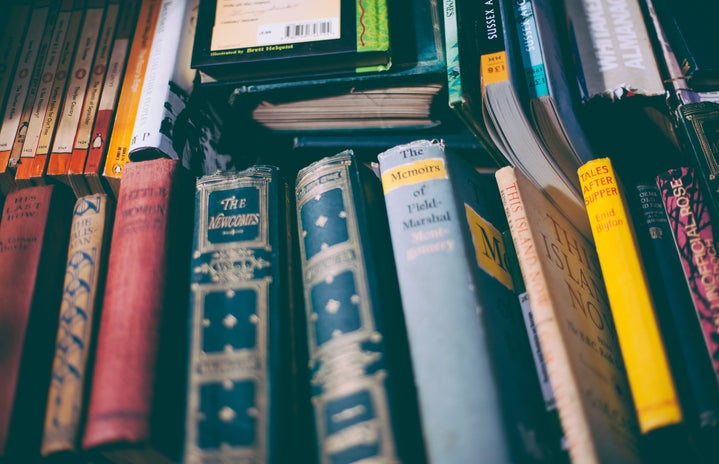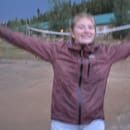We all have those books that stick in our brains. Whether it is because you saw yourself reflected in it in some way, because it features a favorite trope (enemies-to-lovers fans, where you at?), or because it was just a really great book, there is nothing quite like a story that refuses to leave you alone. But sometimes, there will be a book that sticks with you not just for these reasons, but because it makes you question everything. I’m talking a “Truman Show” level of mind-boggling, here. Below is a list of some of my favorite books that made me question everything.
- “Cloud Cuckoo Land” by Anthony Doerr (2021)
-
Personally, I’ve never really been a fan of science fiction. I just think that the “The last of the human race is stranded in outer space” trope is overdone. Sue me. “Cloud Cuckoo Land,” however, rocked my perception of this genre. Combining sci-fi, historical fiction, and mystery with grace and aplomb, this book is truly magnificent. It also earns extra points for being able to juggle multiple points of view and multiple time settings. As a writer, I can attest that it is very difficult to do just one of these things well, let alone both at once. It also has an absolutely PHENOMENAL underlying plot and plot twist, which I can guarantee even the most experienced reader/analytical mind will not catch. 10000000000/10 would recommend.
- “Why Fish Don’t Exist: A Story of Loss, Love, and the Hidden Order of Life” by Lulu Miller (2020)
-
As you might have garnered from the title, this book is about how fish do not exist. Of course, those things swimming in tanks at the aquarium exist corporeally, but “fish,” as a taxonomic category, do not. At least, that’s what journalist Lulu Miller argues. She explains it much better than I do, by combining beautiful field-journal style drawings, an exploration of her own life, and the fascinating biography of David Starr Jordan, one of the world’s premier taxonomists. In his career, he discovered and categorized nearly one fifth of all the fish species known in his time (1851-1931). I was pleased to share a name with such an accredited scientist, that is until I found out he was an avid eugenicist at the end of the book. For a fascinating deep dive (pun intended) into an overlooked area of history and scientific methods, check out this read.
- “Troublemakers: Lessons in Freedom from Young Children at School” by Carla Shalaby (2017)
-
Okay, I haven’t actually finished this book. But, as an elementary education major, I am reading this in one of my classes this semester, and it is fantastic. I have often found that material on education, despite its importance and the fact that it is my life’s purpose, is often really bland. Think raw hot dog bun bland. This book however, reads more like a novel than a case study. Carla Shalaby is an author, former elementary educator, and the current Coordinator of Social Justice Initiatives and Community Internships at the University of Michigan School of Education. In this 2017 book, she conducts profiles on four elementary school students, all of whom are “troublemakers.” Shalaby invites us into the lives of each of these four children, and what their school and classroom experiences look like. She urges us to consider what makes children “troublemakers,” why these students engage in “troublemaker” behaviors, and what, in fact, “troublemaker” means. I encourage you to read this no matter your field of study/career, as it may very well change your entire perception of America’s traditional schooling systems.
- “The Husband Stitch” by Carmen Maria Machado (2014)
-
I am not exaggerating when I say that this short story haunts me. I first read this in 2020, during my fall semester freshman year of college, and I have reread it probably six or seven times since. I have written two papers on this story, used it as evidence in countless literary discussions, and fallen deeply in love with Carmen Maria Machado as an author. Whatever I do, this story just will not leave me alone, and whenever I revisit it I find something new; another disturbing takeaway. This fiction piece can best be described as fairytale x Aesop’s Fable x dystopia x story within a story, à la Midsummer Night’s Dream. The imagery in this story is fantastic, and the double-meaning of the husband stitch genuinely makes me shiver when I think about it (if you don’t know what a “husband stitch” is, I encourage you to read the story first, and then click here to learn about it. It is amazing how much the piece will change for you). You can read “The Husband Stitch” online here. My other favorites are “Real Women Have Bodies” and “Inventory”. I am currently attempting to read every single thing she has ever published.
Machado’s short story collection which features all of the above - “White Oleander” by Janet Fitch (1999)
-
This book is…well, this book is sad. Heart-wrenching-ly, soul-sucking-ly sad. I first read this book when I was in seventh grade, and oh boy, was that a mistake. Don’t get me wrong: it is a phenomenal book, but it deals with some super heavy stuff. It centers around the main character’s plunge into the foster care system after her mom is arrested, and touches on [Trigger Warning] rape, sexual abuse and assault, extreme violence, drug use, incarceration, and more. And yet, despite its million-pound subject matter, this book still manages to blow me away. I haven’t read it in a couple of years, but I am interested to see how the message and overall product may have changed for me now that I am an adult. This book boasts beautiful prose, deeply personal characters, and a steady narrative hand. It holds your hands during the tough parts of the story, and plays a volatile game of jump rope with heart-warming and heart-wrenching, switching when you least expect it and when you most expect it. Have a box of tissues nearby if you pick this one up.
I hope that you’ll put these books on your TBR list, especially if you love a good existential crisis before bedtime. Happy reading/questioning everything!



